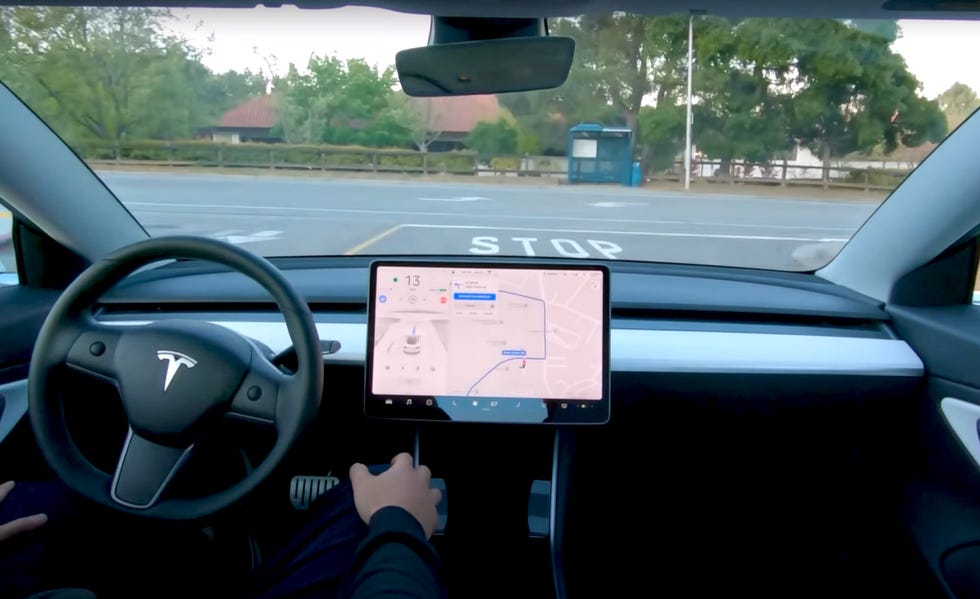It is not hyperbolic to state that Tesla is the most influential and important automobile company of the 21st century so far. It deserves credit for innovations and products that have shaped the industry and its future. But its influence—and that of its autocratic leader, Elon Musk—has come at a cost.
The latest season of Vox Media’s tech podcast “Land of the Giants”—which has previously looked at such brands as Amazon, Google, Netflix, Facebook/Meta, and Apple—now dives into the EV car company. Through dogged reporting, veteran car journalists Tamara Warren (The Verge, the New York Times) and Patrick George (Jalopnik, The Drive) weave together—at least in the two episodes we’ve had the privilege of hearing so far—a history of this EV juggernaut and its impact on the car industry, government, and the larger global context.
Aren’t We Tired of Tesla by Now?
But, as one of the most covered companies and people in the media landscape, we have to ask, why does the world need any further reporting on the subjects? “It’s easy to get caught up in the daily news about Tesla because there’s just so much,” says Warren, who has been writing about the company since its launch. “But when I joined this podcast, I was struck by how interesting it was to look back on the history, and retrace what’s happened, and then do a serious evaluation of how that impacts the market today and where it’s going tomorrow.”
In its headstrong rush toward a future it is helping to define, Tesla and Musk have certainly disrupted our notion of what a car can and will be, along with things like the direction of our transportation policy, how we live, how we buy cars, and how we produce them. The podcast explores all of this. But its real strength is in describing the impact of this breakneck transformation on the lives of the actual people involved. There is no doubt their existences were disrupted too.
For Good or Ill, It Was Life-Altering to Work There
“I think generally I would characterize for them that this was a life-altering experience. Whether that experience was positive or negative varied depending on who I spoke with and what their role was,” Warren says. Many reveal that they had a really difficult time working at a company where there wasn’t a lot of work-life balance, where the protective structures that exist in a traditional industry intentionally didn’t exist, and where people—even at the highest levels—were seen as expendable.
Many were betrayed by the company, or by Musk personally, who comes across as capricious, vituperative, and vindictive and, as one of richest people in the world, able and very willing to enforce the silencing of dissent with the threat of ruinous burial in legal action. “I think over the course of this series you can see how the workers often get forgotten at Tesla at all levels, because their voices have really been stifled,” Warren says. “And I think when you hear the trepidation in their voices, it comes from working at a company where the motto was success at any cost. And it asks the question, what is the cost of a human contribution to that?”
The Cult of Personality
The series also excels at studying the psychological roots of the cult of personality that surrounds Musk and, by extension, Tesla. “The passion that exists around this brand is unparalleled. It’s nothing compared to the Ferrari boys who put posters on their walls. It’s a whole other level of enthusiasm, and it’s often not rooted in positivity,” Warren says. But this does not deter her and George from an honest analysis. “As a woman who has covered the auto industry for a long time, I’ve seen and have experienced some of that Tesla backlash or criticism. So I kind of anticipate that’s just part of it,” she says.
Given all of this, we wondered if she had come away from the creation of this narrative with greater understanding of Musk. She had, and it wasn’t particularly favorable. “I think he seems like a bad person to me,” she said. “And I think that’s something you hear a lot too now, people really struggling about how they feel about owning this car, be it current owners or [those considering] whether or not to buy one, because of its association with the CEO.”
She cautions us to continue to monitor the company’s situation with trepidation. “Despite the behavior of the CEO, we’re in the midst right now of this massive shift where Tesla is essentially being charged with managing the infrastructure in the sense of operating our national charging network,” she says, referring to the current industry decision to contract with Musk’s Superchargers, which are currently the world’s only effective grid for fast-charging a rapidly increasing coterie of EVs.
It’s possible that whatever your position on the company, Tesla may take a role as outsize, and potentially influential, as that of Big Oil. As Warren says, “You can’t count Tesla out.”
“Land of the Giants” is available on Apple and Spotify.
Contributing Editor
Brett Berk (he/him) is a former preschool teacher and early childhood center director who spent a decade as a youth and family researcher and now covers the topics of kids and the auto industry for publications including CNN, the New York Times, Popular Mechanics and more. He has published a parenting book, The Gay Uncle’s Guide to Parenting, and since 2008 has driven and reviewed thousands of cars for Car and Driver and Road & Track, where he is contributing editor. He has also written for Architectural Digest, Billboard, ELLE Decor, Esquire, GQ, Travel + Leisure and Vanity Fair.

